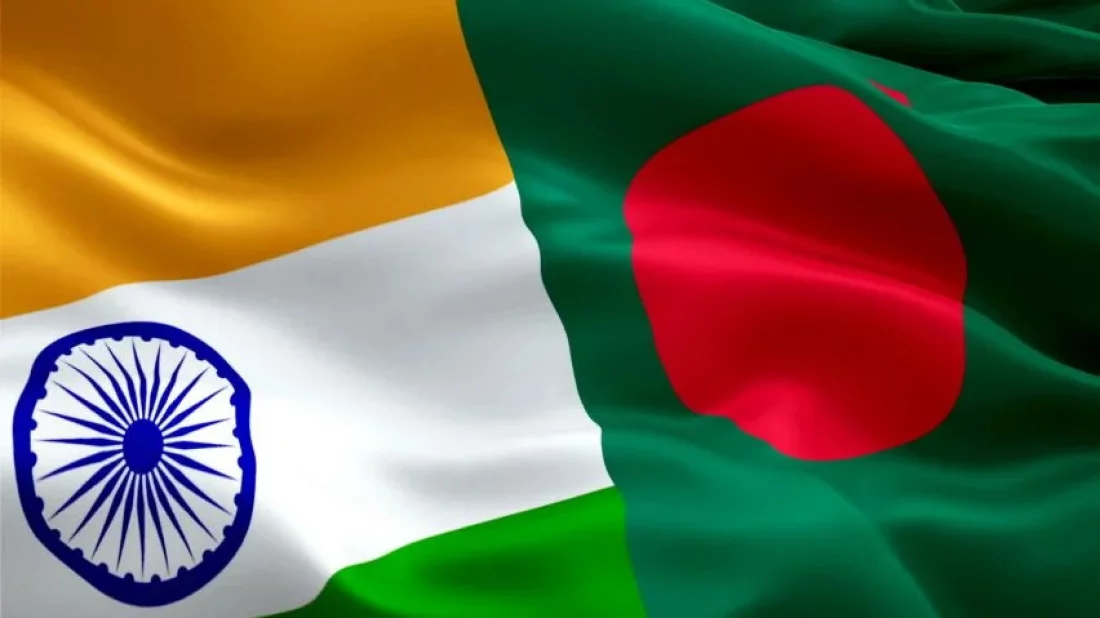
Neighbouring India can use Bangladesh rail lines to carry goods and passengers across its territory, and Bangladesh can carry goods and passengers to Nepal, Bhutan and India using Indian rail lines, according to the newly announced railway connectivity Memorandum of Understanding (MoU) signed by Bangladesh and Indian Railway during Prime Minister Sheikh Hasina’s recent India visit.
In Bangladesh, there is speculation that the Indian government can carry military weapons or ammunition through Bangladeshi rail lines from one country to another, particularly from Delhi or Kolkata to its seven sisters.
However, the rail ministry officials, who are familiar with this agreement, rejected these speculations and stated that Bangladesh Railway meticulously drafted the contract, prohibiting the transportation of any destructive goods or products inside Indian rail wagons through Bangladeshi territory.
Rumours are also rife in Bangladesh, suggesting that Indian soldiers might be permitted to guard their rail wagons once the rail route becomes operational. However, the Bangladeshi railway authorities have refuted these rumours, asserting that the domestic law and enforcement agencies in Bangladesh will maintain the security of the Indian rail wagons, just as they do for the Bangladeshi rail wagons, and will not permit outsiders entry into the picture.
According to the new agreement, India can use Bangladesh's existing rail lines to carry goods and passengers within the country from one state to another, and Bangladesh can use Indian rail lines to transport goods and passengers to other neighbouring countries like Nepal, Bhutan and India.
Currently, five operational interchange points connect Bangladesh Railways to the Indian Railway network: Benapole in Bangladesh-Petrapole in India, Darshana in Bangladesh-Gede in India, Rohanpur in Bangladesh-Singhabad in India, Birol in Bangladesh-Radhikapur in India, and Chilahati in Bangladesh-Haldibari in India.
Additionally, trial runs have been conducted between Akhaura (Bangladesh) and Agartala (India), with commercial services expected to commence soon.
At present, two more rail connectivity projects between India and Bangladesh are in the survey stage: Belonia (India) to Feni (Bangladesh) and Mahisasan (India) to Shahbazpur (Bangladesh).
According to the new rail connectivity agreement between Bangladesh and India, India can operate trains on these routes using Bangladesh's rail track, and Bangladesh will receive a charge from the Indian railway.
According to railway data, in the 2022-23 fiscal year, 982 Indian trains transported goods inside Bangladesh, and Bangladesh Railway earned Tk117 crore from wagon charges only.
Bangladesh Railway expects that when India operates more trains, Bangladesh will be able to earn more.
In addition, Bangladesh had a transit agreement with Nepal and Bhutan in 1976 and 1984, in that order.
However, those transit agreements proved to be ineffective. With the recent agreement on rail connectivity with India, though, the transit agreements with Nepal and Bhutan are expected to gain momentum, according to railway sources.
According to sources in the railway ministry, this agreement has been reached with India to facilitate easy access for Bangladesh to Nepal and Bhutan. In the near future, Nepal and Bhutan can also utilize Bangladesh's existing ports to enhance trade and commerce.
According to the new agreement, Bangladeshi trains will enter Nepal through two routes: one is 529 kilometres of rail track from Rohanpur-Singabad-Roksol-Birganj, and the other is 220 kilometres of rail track from Birol-Radhikapur-Jogobani-Bhiratnagar.
Bangladesh will be connected with Bhutan with 231 kilometres of rail track from the Chilahati-New Jalpaiguri-Hasimara route.
There is no rail line in Bhutan, but Bangladesh and India can reach their borders via the Hasimara rail station, which is nearly 20 kilometres from Bhutan's border city.
Furthermore, Bangladesh was granted permission to use Assam's Kokrajhar and Bhutan's Gelephu rail track when it became operational between India and Bhutan, according to the recent rail connectivity agreement between Bangladesh and India.











